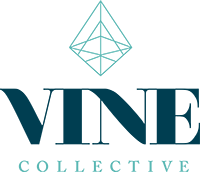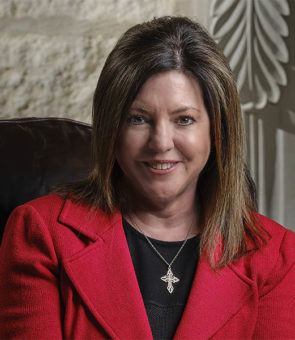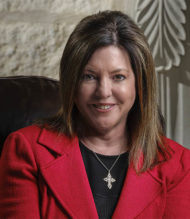Posted on February 27, 2023
One of the signs of a good organization is the one that dedicates a lot of their resources to community building. Kelly Barclay understood the importance of serving others wholeheartedly while going up through the banking industry. She now serves as the President and CEO of Ozona Bank for more than a decade. Joining Steph Silver, she talks about how banks can bring a positive impact not only to the finances of their customers but to their daily lives as well. Kelly also talks about hiring individuals who are passionate about bringing people together and why community banks are more flexible in addressing customer needs from a personal standpoint.
—
Listen to the podcast here
Efficient Community Building Through Banking With Kelly Barclay
We are very lucky. Our guest in this episode is Kelly Barclay. She has been President and Chief Executive Officer for Ozona Bank for many years. She’s a founding member of the Wimberley Rotary Club and previously served as the Finance Committee Treasurer of the Wimberley United Methodist Church for over 30 years. She has also served as Director of the Wimberley Education Foundation and as a member of the City of Wimberley Planning and Zoning Commission, as well as various other local and civic organizations.
Kelly has served on the Independent Bankers Association of Texas Board of Directors since 2017 and has been a member of the Federal Reserve Bank of Dallas since 2019. She’s also serving on the Wimberley Valley Radio Board of Directors since 2022. Kelly, thank you so much for taking the time to be here with us and for supporting the show and the community in all of the ways that you and the bank do so.
Thank you for having me here. It’s a pleasure and we are glad that we had the opportunity to help participate you featuring all the small community businesses in Wimberley. It’s been a great program. Thank you for taking that initiative.
It’s been a joy. I just moved to the town of Wimberley. I was in Driftwood and it’s been so great to deeply get to know all these business owners because several of them I have known and watched. I admire the way that they run their businesses. It’s an honor to help share the story behind the story. Let’s jump and dive into this interview. Tell us a little bit about yourself and the road you have traveled to get to where you are now.
My journey’s a little different than most. I started in banking back in 1978 at Frost Bank. I graduated from high school a year early and I took a position where they trained me how to run a proof machine. A proof machine is basically or was at that time what was used to balance the bank. All the transactions that were processed through the bank, including cash transactions, checks, and deposits. Everything was run through the proof machine.
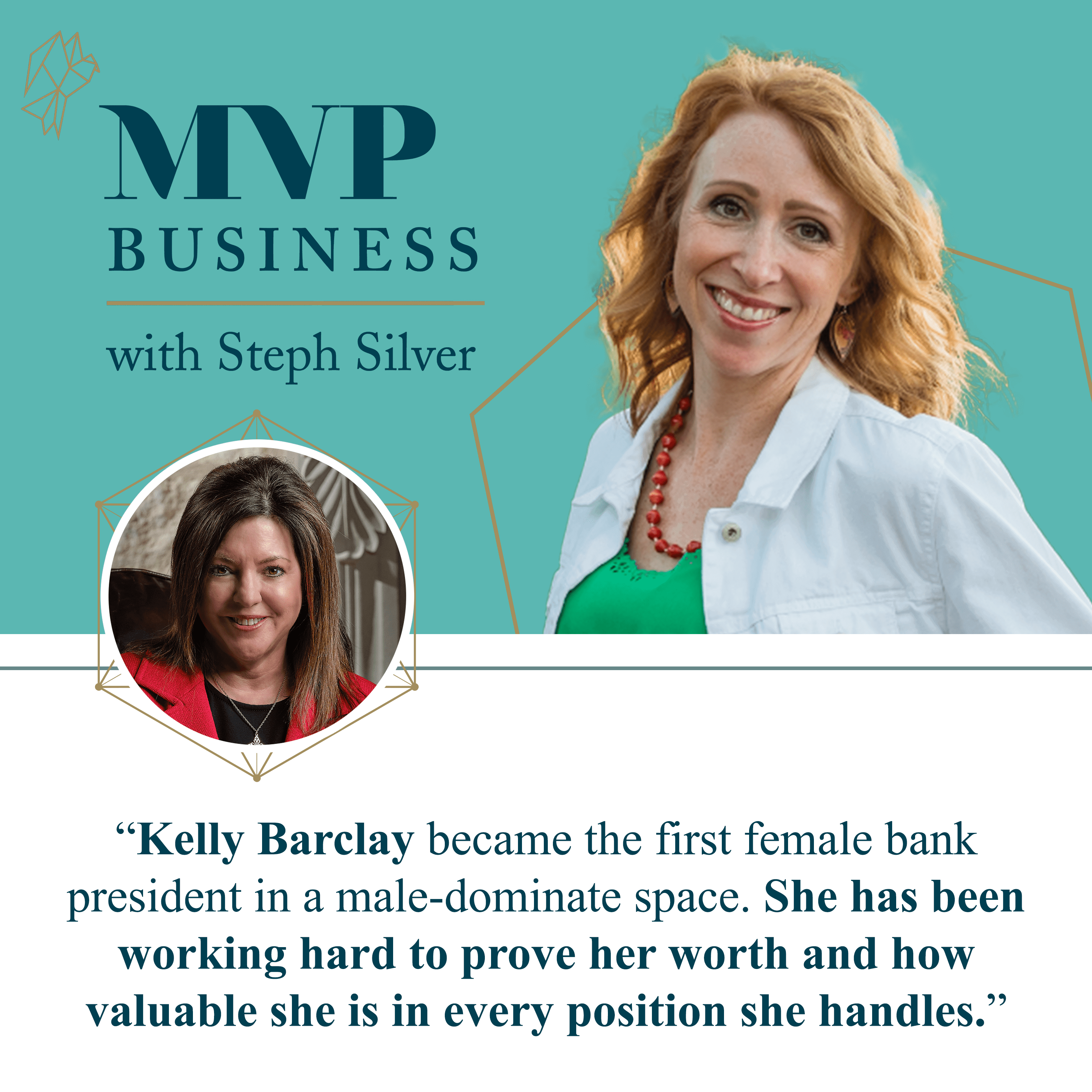
I was trained in that area. I enjoyed it. About a year later, I was married to my first husband and we moved to El Paso. While I lived in El Paso for two years, I went to work for a small loan company that catered to the military and that’s where I learned the art of collecting bad debt. We left El Paso and moved to Rockport. I was in Rockport for almost a year and went to work for a small community bank. They immediately, with my prior experience, put me to work. They eventually taught me how to process loan documents.
That was an interesting time. Back in the ’80s, interest rates were double-digit. Inflation had risen to 9.5%. There were challenges back in the ’80s. We left Rockport and moved to this beautiful community of Wimberley. I had never been to Wimberley. I was raised in the North side of San Antonio. I had seen the signs, but to come to Wimberley you have to travel to Wimberley. It’s nothing that you passed through.
I recall coming down the big hill and thinking what a beautiful place. We became very embedded in this community and it’s a fantastic place to raise your children and a great decision that we made back in 1982. I then needed a job. I had heard that Wimberley Bank was looking for a proof operator. I applied in with my prior experience, they hired me. I ran the proof machine for probably three months and then they moved me into a lending assistant role.
I continued to grow with the bank. Being a lending assistant and working in a small bank, you wear many hats. I was also the new account rep. I also was a customer service rep. I also open CDs. It’s whatever came across your desk, you took that customer, held them by the hand, and helped them through that process. The years went by and in the late-’80s, the bank started having some problems with some bad debts. The regulators started seeing us more frequently.
I was promoted to the president’s executive assistant role. From there, we bought two computers in 1987 and it was our first computer. I was fortunate that I was asked to help build a loan policy. We did not have a loan policy at the time. I was also asked to help do some other reports that the regulators were requiring. I learned how to operate the DOS operating system. I learned how to work on Lotus 1-2-3, which was prior to Excel. We got busy and it help provide all the information that the regulators wanted.
That was a challenging time but I was pregnant at the time. In late-1987, I had my first child and decided to be a stay-at-home mom. I will tell you that the bank president would call me on a monthly basis and ask me if I was ready to return to work. Finally, after nine months, I was ready to return to work. I came back as a consumer lender and stayed at the bank even though the regulators came in and removed our board and terminated our bank president.
They brought in an individual to manage the bank and it was in mid-1990 and I was pregnant with my daughter at the time. The regulators came in and closed the bank. We had five banks that were bidding on the purchase of the Wimberley Bank and Ozona Bank was the highest bidder. That day, I will never forget it. It was like a death, a funeral, and a wedding all put together. The next day we came to work and we didn’t know if we were going to have a job or not.
We all had to reapply for our position. I will say I was fortunate. I did retain my job. About four months later, I received a call from the bank president. The day I delivered my daughter to the hospital, he called me and offered me a promotion to the branch manager position and a nice salary increase. Six weeks later, I came back to work and I have never looked back.
I can’t help but reflect on the fact that when you were away, it was so clear to them how good of an employee and how valuable of a member you were especially in the ’80s. They weren’t going to let you be away. What did that mean to you? I know it’s all very scary. Being a new mom is scary enough and then going through the closure and change. How did that feel and how did it feel to come back and go into this new bank system?
I felt very fortunate because the culture that the Wimberley Bank and the culture of Ozona Bank were very similar. It all stems from being able to serve that customer. That customer is a priority, but also our families are also a priority to the bank. With that, I was very fortunate. I ended up raising three children and later became a single mother. I had a great support system at the bank.

Community Building: The culture at Wimberley Bank and Ozona Bank both stems from making customers their priority.
I value that and I look at other women that are single mothers raising children. You don’t want to miss out on those opportunities when they are in the school play or they are showing animals. You want to be there and experience that. Family comes first with Ozona Bank and our customers become our family over time. We have a lot of grandparents, parents, children, and grandchildren. That’s very unique to have in a small community and very special.
I moved to the big city of Austin when I was nineteen and I started banking earlier, but I had enough money to walk into a bank more often around that time. My experience with banking was mostly with the big guys and they do the transactions and you walk away. When I walked into Ozona Bank for the first time, I was blown away. I had lived in small towns and gone in with my parents, but it felt very similar to some of the bigger banks. You are all going to school together and you have kids that go to school together but with Ozona, it was very clear that everyone at the bank knew the ins and outs of what was happening with each customer.
“Joe, how’s it going? How’s your mom? How’s the farm? I know you had that problem. Did it get better?” That’s so wonderful. How do you go about your hiring process or your training in order to ensure that community dedication is cohesive and aligns with the values that were sent out initially by Wimberley Bank and Ozona Bank and are now you carrying it forward?
When we look at possible candidates, we want employees that can look outside of the box, think outside of the box, and are not afraid of challenges. We have learned that in this day and time, we also need individuals that can be very agile because we are constantly faced with challenges that are outside of our control.
We also use a personality assessment that gives us an insight into that individual. We want people that naturally enjoy engaging with others and helping others in finding solutions to their problems. When you can bring people on the team that thrives in helping others, that’s what drives our culture and helps the success of the bank.

Community Building: Hire people who naturally enjoy engaging with others to help them thrive and find solutions to their problems.
Customer service is the core of all business and customer relations. If you have a team that is dedicated to the success of the customer, then they are going to go out of their way to figure it out and they will learn on their own as they go and grow because of what’s needed at the moment. That personality match and the willingness to say like, “You have a problem. Let’s figure that out together.” That’s more important than coming in having a particular skill.
We even have employees that solve problems on the weekend when the bank is closed.
They go home thinking about it.
Our customers have our cell phone numbers. We even work on the weekends to help find a solution to their problem. How frustrating is it when you try to use your debit card and it doesn’t work? If you can fix that problem, then we are going to be there to take care of it. You are not going to get that service at one of the larger financial institutions.
No, and they don’t even know who you are. One of the other things that you told me once when we were speaking is that in Wimberley, you are always a banker. You go to the H-E-B and you are stopped by people that say, “I have this question,” or, “Thank you so much for lending to me when I needed it. It’s changed my life.” I guess that was maybe the answer, but why are you so passionate about community banking? You have dedicated your life to this.
It’s very natural for me. It wasn’t what I had intended to do with my life and it came very naturally. I have the desire to want to make other people’s lives better in whatever way that may be for them. I have had an individual come up to me and say, “I want to thank you and Ozona Bank for everything that you did for me and my wife. There were times when we lived paycheck to paycheck and we had emergencies that came up and we didn’t know how we were going to make it. Ozona Bank always had faith in us and always pulled us through those times.”
You don’t realize when you are doing it necessarily what you are doing, it’s because you can be that resource and you can help solve that problem. There’s nothing more gratifying than being able to help someone like that. I had an individual I met with regarding some work on the bank property and I did not realize that this individual was a customer of the bank, but he made sure that I knew as we finished up our conversation that day that he was a customer.
There is nothing more gratifying than helping another person solve their problem. Click To TweetHe came into the bank many years ago and he said he didn’t know anybody in the bank. He did not have an account at the bank, but he needed some money. He walked in and sat down and he said the person on the other side of the desk made the decision to loan him money. He said that from that moment, he closed his account at the megabank and moved all of his business over to Ozona Bank. He shared with me that he shares that story with other people and that he would not be in the business he’s in now had we not been there to help him, and that we are still helping him. To have that impact on somebody is pretty amazing and we don’t even realize we are doing it.
What a great opportunity to be able to hear those stories because I think one of the reasons that the big banks and this is probably too with big corporations in general. One of the problems that I have with, for instance, Google and Facebook and all these big organizations are you get lost thinking that you are moving numbers or code around or those disconnected concepts.
However, at the end of the day, we are all affecting people. When you can see that face and look into their eyes. You guys worked with Chris at Wimberley Films to do some testimonial videos and when you see the tears come up or that you are changing lives. Also, when you are able to connect those dots for yourself and for your employees, it makes all the difference in continuing to make those decisions.
It does and I think it’s the passion that we have to help others, and that’s our driving force.
We are going to go back to a part of your story. You said that you joined the Dallas Federal Reserve. What does that mean and why is it important? How the heck did you get on the Dallas Federal Reserve?
It wasn’t on my bucket list. I answered the phone one day and I received a call asking me if I would have interest and running for a position on the Dallas Fed Board. The Fed Board itself is made up of nine board members. Dallas itself has three branches, El Paso, San Antonio, and Houston, and the main location is Dallas, which is the eleventh district. There are twelve districts of the Federal Reserve. 3 of those directors out of the 9 are bankers that are elected by banks and our respective groups.
There are another three that are business people that the bankers elect. There are also three appointed by the Board of Governors out of DC. When I was asked to consider running for this position, I was somewhat reluctant not knowing what I would be getting into. I started my due diligence and had conversations with other bankers that had served. They all ensured me that I would get more out of this experience than I ever put into it and they were correct.
I ran a campaign, which I had never run a campaign before. This was all new. Fortunately, I ran unopposed. I was elected and started my first term in 2019. One of my responsibilities as a director is really to bring back insights from my local economy and the industry that I serve. In doing that, I poll my bankers and bring back some key data that I share with the Fed. It’s that grassroots information that is extremely critical to the Fed since most of the data that they are dependent on is somewhat delayed. To get this grassroots information is extremely important as they make their decisions in monetary policy. I feel blessed to have served and unfortunately, I’m in my second term. It will be ending soon.
I don’t know if I’m stating this correctly, but were you the first woman in the Dallas Federal Reserve?
I was the first woman bank president.
What year was it that you became bank president?
I became the Ozona Bank president in 2010. When the board asked me to consider being a part of the board, it was probably back in 2001. At the time, I had divorced my children’s father and I was thinking, “Maybe I need to leave Wimberley and move back to San Antonio.” One thing is I did not have a college degree and this was always a goal of mine. I thought about pursuing real estate law. The bank president came to me and said, “We would like for you to be a part of the board of directors,” but in doing so, I had a couple of challenges.
The first one was I was required to own 100 shares of bank stock and I was also informed that nobody sells their bank stock. It took me two years before any stock became available. The reason why they don’t sell their bank stock is that their grandmother told them, “Don’t you ever sell that bank stock.” It does get passed down from generation to generation.
My second challenge was the board wanted me to attend the Southwestern Graduate School of Banking, which is a three-year program focused on bank management. I thought, “That’s going to check my box for the college education that I never did receive.” Being single at the time, I had a lot of support from my parents. My present husband encouraged me and my three children were watching their mother as she walked across the stage and graduated with honors in Leadership and Distinction.
I felt I’d finally achieved my goal and it was a good feeling. I was on the board. Several years went by, the board informed me they wanted me to be the next president when the current president had retired. I agreed. However, I did say, “As long as I don’t have to live in Ozona, Texas. I want to stay in Wimberley.” They agreed to that and felt that that was really in the bank’s best interest. It’s been a great experience for me and I couldn’t think of a better group of people to work for.
You have been really lucky to be working with a company, an organization, or a bank that is family focused and sees your worth and value for what you bring to it. You have been working hard and you have been dedicated, otherwise, they wouldn’t be pulling you into all of these different positions. I want to stop for a minute and mention, there are all these posts, articles, and videos on how a woman can get a promotion in this day and age.
I know in some organizations, it’s harder for women, so I’m not going to discount that. I also want to call out that this happened to me as well. If you are truly willing to do all that is necessary as we talked about for the customer and for your team, then you don’t always have to ask if you are working for the right organization.
I told my children growing up that 100% was not going to get them there. You were going to have to give 110%. I am a hard worker. I also feel that it’s important to do the job correctly, but you also have to continue that education because something is always changing constantly. I didn’t have the expectation either. I’m driven and I kept putting one foot out there and pursuing.
Giving 100% will not get you what you want. You need to give 110% Click To TweetI recall that the Wimberley bank president told me one time. He said, “You could run this bank.” I said, “I can’t run this bank. I was 25 years old.” I thought he was crazy, but others seem to have confidence in me and see something in me that I didn’t see in myself. That helped support me and move me forward. It’s been a great journey.
I wanted to call out the timeframe for women’s rights and our position in the office has changed a lot. It feels like every year they are changing but you got into banking when it was very male-dominated and became the first female president. That was not that long ago but your experience has been one in your organization that you always felt like an equal. Would you say that’s the same when you are outside when you go to conferences, or as you have grown in this? Have you seen or felt any difference in the boardroom in being a woman in banking?
I can’t say that I have felt discriminated against for being a woman. In all the organizations that I’m involved with, I have not picked up on that whatsoever. If anything, it’s respect for being a woman and being in a leadership role in this industry. I’m also part of a bank-wide CEO network and we meet twice a year. It’s bankers from all over the country. I may walk into a room of banks of similar size and there may be twenty people in that room and I’m lucky if there’s one other woman sitting in there with me.
The advantage is that when I use the facility, I don’t have to wait in line. However, I have gotten used to it and it doesn’t bother me. I find that most of the individuals that I meet along my journey are very engaging. I go back to the time when we were going through PPP. Bankers lean on each other for resources and we all came together from all over the country to figure out PPP together. We are competitors in some ways, yet we are also teammates as we are community bank leaders.
I love hearing that. That’s been mostly my experience too, as far as the respect in that industry especially since women are the minority. I have heard other things. It’s great to hear that your experience has been one of respect, equality, and community. I wonder if part of that is how you show up in your space or in the room and you are not aware of it.
Possibly. I have never considered it. That may be it. I don’t know but I did mention the other day to a fellow friend over at the Fed that once my term is up, I would like for another woman to replace me on the board. He totally agreed with me.
As if nothing else, as you are representing your community, it’s another part of the community that needs to be represented. A different voice that sees things differently. I love that you are pushing to carry that forward and all the things that you are pushing to carry forward in the community and outside of it.
Are there practices that you have put into place at Ozona or were they already there to ensure a culture of cohesiveness or dedication to the community and friendly atmosphere? A lot of people don’t know, how much you guys give. You give to the radio station. You give to Wimberley Athletics. I could go on and on and on and especially over the years, about how many organizations and individuals you have supported. How do you continue to foster that?
At Ozona, we give back to the communities that we serve. We have four locations. Ozona, Wimberley, San Marcos, and San Antonio. We at some level give to the communities in all various ways. Wimberley and Ozona are somewhat unique in that Wimberley did not incorporate until 2000 and Ozona is still not incorporated to this day.
Ozona is the only town in the county so they do have the assistance of the county government there. Moving here in 1982, I noticed quickly that Wimberley was run by non-profit organizations. I had to learn how to say no real quick. Wimberley is unique in that way and we still have so many of those non-profits now. As the city is incorporated, they still find a need that they are able to get the resources to help fill those needs as they come up in this community. I think it’s our responsibility to give to the communities that we serve. We strongly support that in all of our communities.
What positive things have you learned along the way, either in the community and in engaging with the community or in your journey through being in the banking industry?
It comes down to all the relationships that have been created over the years. Relationships with my coworkers, my customers, and those within the community. I have learned through this journey that it’s what can I do for others to help them succeed. There’s an awesome feeling there, especially when you see others succeed.
When you provide somebody an SBA loan, which is a small business loan that’s guaranteed by the government because you are seeking an SBA loan because, for some reason, they may not be bank qualified. You help them through that journey and they are able to secure the funds to buy a business and twenty years later, they pay you off. Ten years later, they may sell that business and the process starts all over again. That’s pretty incredible to be able to see that from the very beginning and then watch it transform into others as they grow that business to the next level.
Everything that you said made me think that if the core of all businesses and organizations started from, “What can we do to help people succeed?” As long as you have the experts on the operations side because that’s sometimes the part that also makes people and organizations fall apart. If you have that operations side solid, you have your spreadsheets and your strategies. If your goal is clear, mandated, and supported to help others succeed, then it empowers everyone to make the right decisions.
I have learned that it’s much easier to make the right decision and sometimes it’s a hard decision, but it sure makes things easier in the long run.
Always try to make the right and hard decision. This can make things easier in the long run. Click To TweetI’m sure you have had a lot of hard decisions to make over so many years of being in banking and working with teams that have grown and changed over the years.
There have been many hard decisions. I can’t say one’s been harder than the other. It’s never easy to have that difficult conversation with a borrower when they want to borrow more money than you know that they are going to qualify for. You work and you try to explain to them because you want to do what’s in their best interest. Sometimes they may not think that’s in their best interest, but if you are able to walk through the financials and explain it to them.
Maybe it’s something that we will do in steps, but we have got to move in a different direction than what they had originally planned in moving to. That’s when you can create those relationships with your customers. They will value that because you didn’t get them in trouble. It’s not easy having those conversations, but in the long run, it’s what’s in the best interest of all involved.
I would imagine that the conversation is different when it comes from a place of trying to help and care. If you are telling someone that they don’t qualify because ahead of time, you are looking at all the numbers and saying, “Even if we submit this, it’s not going to work. It’s not going to be approved. Let’s look at other options.” If you come from a place of wanting to help, then you can say, “Here’s why. This is what you need to get in line before you apply next time.” As you said, “Here’s this other thing. We can give you a different loan that you can get you from A to B instead of A to Z right now. As you go through, we will grow with you.”
Having that connection and commitment serves or creates a different conversation as opposed to, “You are not going to be good for the bank. You are not going to bring us the interest in profit. You are not going to pay this off. We are not even going to talk to you right now.” I think that again is a difference in community banking or even the mindset of the banker because that mindset is there in the large banks as well, depending on whom you are speaking with. It’s what’s fostered.
In the larger banks, they cannot really step outside of the box. Where in a community bank, we have got some gray areas that allow us to make decisions that if you walked into the big bank with the same request, they are going to run it through their software and it’s going to kick it out and say, “No.” We are going to look at it from a personal standpoint. We are going to look at many factors. We are going to look at how we can do the deal, not how we are not going to be able to help the customer. We are flexible in that area where your larger banks will not be.
We found out the hard way in 2008 how small banks are the bedrock of our country. People like you have known that, but we saw it on a large scale. I think a lot of people have forgotten or moved past or see it as an article in the paper and a flashpoint in the past but Ozona Bank is so connected to the community and gives back. I want to give a shout-out to community banks in general because small businesses are the bedrock of America and support so many families. We look at these big companies and we put them on this high pedestal, but it’s the small businesses that run our country and it’s the small banks that power them.
The small banks were able to shine during PPP because when you look at the number of loans that were made during that timeframe, it was your small community banks that made the majority of those loans. We made a higher number of loans than the mega banks. The megabanks did make the higher dollar amount of loans but when you look at the number of loans that were produced, it was your small community banks.
The other thing is we were able to be flexible and jump right in there. The big banks have systems and processes that don’t budge. They were challenged a lot more than we were. We found ways and solutions to get around the obstacles that kept getting in the way. That’s when we used our resources. That was a challenging time. It was also a scary time. We didn’t know what was going to happen.
Being on the Fed board at the time, I understood the program. I understood that it was meant for people to continue to receive paychecks until the lockdown was over. We didn’t know how long that was going to last. We didn’t know how much money it was going to take and we didn’t want our customers not to be able to also partake in that program.
It was scary because we thought the big banks were going to take all the money and the funding was going to run out. It was challenging, but it was also very rewarding to be able to help the small businesses and the communities that we serve. We were able to also foster new relationships because those that the big banks could not help came knocking on our door.
One thing that a lot of people don’t realize, if you are not in a small town or in this town, the individuals that were hurt the most were service individuals. People who worked in service or had service-based customers because everything was shut down. You couldn’t go in. Those types of businesses don’t necessarily have the buffer that large organizations have.
In a small town and especially a small town that is tourists-driven like ours is the ability to keep a few extra people on staff or to extend them a paycheck to stay home or to continue to pay yourself as the owner so that you can get into the kitchen and do all the work yourself and buy your groceries so that you can figure out a new way, a whole new system of serving your customers and keeping your business alive.
That loan program right now is being scrutinized for giving too much money and giving to other wrong people and all this stuff. Again, it’s easy to forget how scary that time was, but it’s important for us to shine the light on how many lives we saved by being able to keep people’s businesses going. This is because without those businesses serving, not just margaritas on the go but serving the community, literally feeding the community and keeping their employees active. You are saving lives because there was also a high suicide rate on drugs and alcohol because it was so scary for so many people. That bridge though was far from perfect and as you said, we didn’t know what was happening.
We managed to look at how we could continue serving our customers in that social distance way. Motor banks worked great in that way, but we came to work every day. We had employees that were able to work remotely and we continued to adopt some new technology during that time, but we continued to provide the service and fill the needs of our customers.
Community banks were there to help those communities and help those small businesses. I know we are dealing with inflation now because of all the stimulus money that was put out there and it’s going to take some time to get inflation back down to the 2% level. I don’t think we are going to get back to the double-digit numbers that we saw in the ’80s, but I do think we are going to be looking at higher rates for a longer amount of time.

Community Building: Inflation rates may not go back to double-digit numbers just like in the ‘80s, but expect higher rates for a longer amount of time.
To be able to operate in the low-rate environment that we have had for the last few years is not feasible. Businesses were very fortunate to borrow money at low rates but when you look at overall where the rate environment is now, it’s somewhere in the middle. I can recall when I moved to Wimberley in 1982. I wanted to get a mortgage on the house that we bought and it was going to cost me 5 points and 13% Now, mortgage rates are in the 6% range. Fortunately, we didn’t close that transaction. That S&L failed before we could close on it but you have to put things in perspective.
It has been a very interesting back-and-forth market over the last several years. We are closing up on the interview and I have a couple of personal questions. Where do you find your inspiration? We have talked about all this banking and community. What inspires you?
I’m very self-motivated. When I was growing up, my parents live paycheck to paycheck and we live comfortably, but we didn’t have a lot of disposable income so I always wanted to give my children more than I had. That’s what motivated me to do more was to provide for my children. Now, I’m happy to say that I have two grandsons. When I spend time with my two grandsons, I can forget about the bank. Otherwise, the bank’s with me 24/7.
Being mindful at that moment is so helpful when you are with little ones because they bring so much innocence and joy. That gives you the power to move through some of the more difficult things. What advice would you have for someone who is maybe wanting to start their own business or do something like take the leap towards something they are passionate about?
In order to grow, I have made myself step outside of my comfort zone. I find that it’s when I take that action that it allows me to expand my knowledge and to be around people that I wouldn’t normally be around and learn from those individuals. However, failure is never trying. As I said, I’m a self-motivator so I’m always pushing myself. My children have told me, “Mom, you can never retire,” because I can’t sit still. You have got to recognize that if you don’t push yourself, you are never going to achieve your goal. Also, nobody’s going to do it for you. You are going to have to do it yourself.
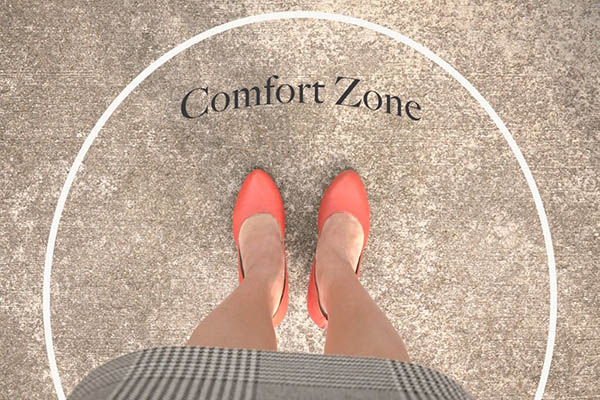
Community Building: Step outside your comfort zone in order to grow. When you take action, you can expand your knowledge and be around people you wouldn’t normally be around with.
That ties back to what you said and the lesson for your children that 100% doesn’t cut it.
It’s working late hours. It’s working weekends and it’s always exploring and looking at other opportunities. Sometimes, you don’t have to reinvent the wheel, it’s already there. Use those resources available to you. Don’t think that you have to create something new and have a passion. Make sure it’s something that you love doing because when you love doing it, it’s not work.
Thank you so much. Thank you for sharing your time and for all of your support for us and the entire community of Ozona and Wimberley and all of the businesses that surround us and keep this community going.
Thank you. We all feel very blessed that we are in the positions that we are in and are happy to help in any way that we can. Thank you for having me here.
You are welcome. Thank you for reading. If you liked it, tell your friends and follow us on Instagram or LinkedIn. The mission of the show is to dig deep into the lives of true leaders so that others can follow, knowing that the path isn’t always easy, but the journey is worth it. Enjoy the day and live with passion.
Important Links
- Ozona Bank
- Wimberley Education Foundation
- Instagram – MVP Business Podcast
- LinkedIn – VINE Collective
